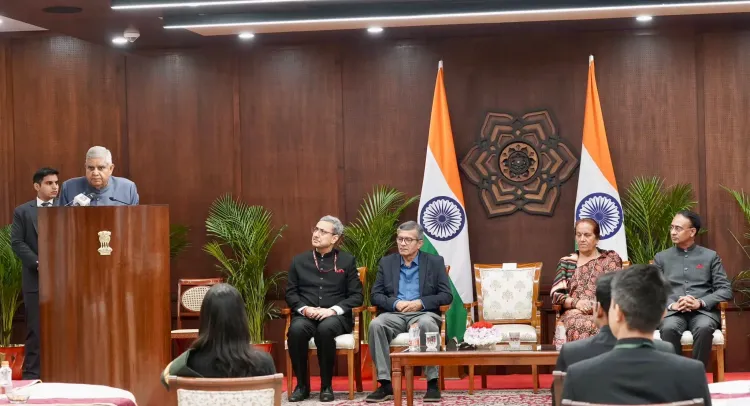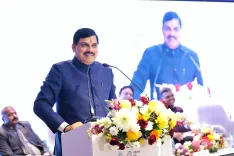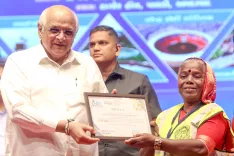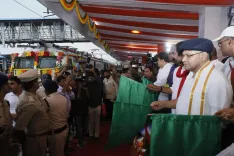Does India’s Leadership Make Decisions Beyond External Influences?

Synopsis
Key Takeaways
- Emphasis on sovereign decision-making
- Importance of cultural heritage
- Critique of commercialization in education
- Call for youth engagement in nation-building
- Recognition of India's global standing
New Delhi, July 19 (NationPress) Vice President Jagdeep Dhankhar addressed the 2024 cohort of Indian Defence Estates Service (IDES) officer trainees at the Vice-President’s Enclave, delivering a compelling discourse that emphasized India's sovereign decision-making and rich civilizational heritage.
“Avoid being influenced by external narratives. All decisions in this nation, as a sovereign entity, stem from its leadership,” he stated, seemingly alluding to certain opposition factions questioning the current government, particularly in light of US President Trump’s assertion that his intervention fostered a ceasefire amid the India-Pakistan conflict.
Referring to ‘Operation Sindoor’—the military response by Indian security forces following the Pahalgam terror attack—VP Dhankhar noted that the operation has not concluded but has been “temporarily paused” after sending a strong message to terror operatives in Bahawalpur and Muridke.
“Some individuals inquire why it was halted. We are a nation that values peace and non-violence... a land of Buddha, Mahavira, and Gandhi,” he remarked.
In a comprehensive address covering governance, youth aspirations, national security, and cultural pride, he urged the younger generation to recognize India’s democratic evolution and its status on the global stage.
He asserted that although India is an active participant in global diplomacy, “no power on Earth can dictate how India should manage its affairs.”
This statement carries weight as numerous Western nations have scrutinized India’s stance on the Russia-Ukraine conflict and have hinted at sanctions due to India’s ongoing oil imports from Russia.
Highlighting India’s transformation over the past decade, the Vice President praised advancements in rural development, infrastructure, and digital connectivity. “People from my era never envisioned a toilet in every household, gas connections, internet access, or world-class trains,” he remarked, emphasizing that ‘Viksit Bharat’ is not just a vision but a current reality.
In a pointed critique of the escalating commercialization of education, he expressed concern over the prevalence of coaching center advertisements. “This is not Bharat. We cannot allow commodification. We must return to the essence of the Gurukul,” he stated, encouraging youth to transcend silos and seize broader opportunities.
Referring to India’s demographic dividend as “a global envy,” he called upon the officer trainees to dedicate themselves to nation-building while honoring India’s ancient legacy and sustainable outlook for the future.






